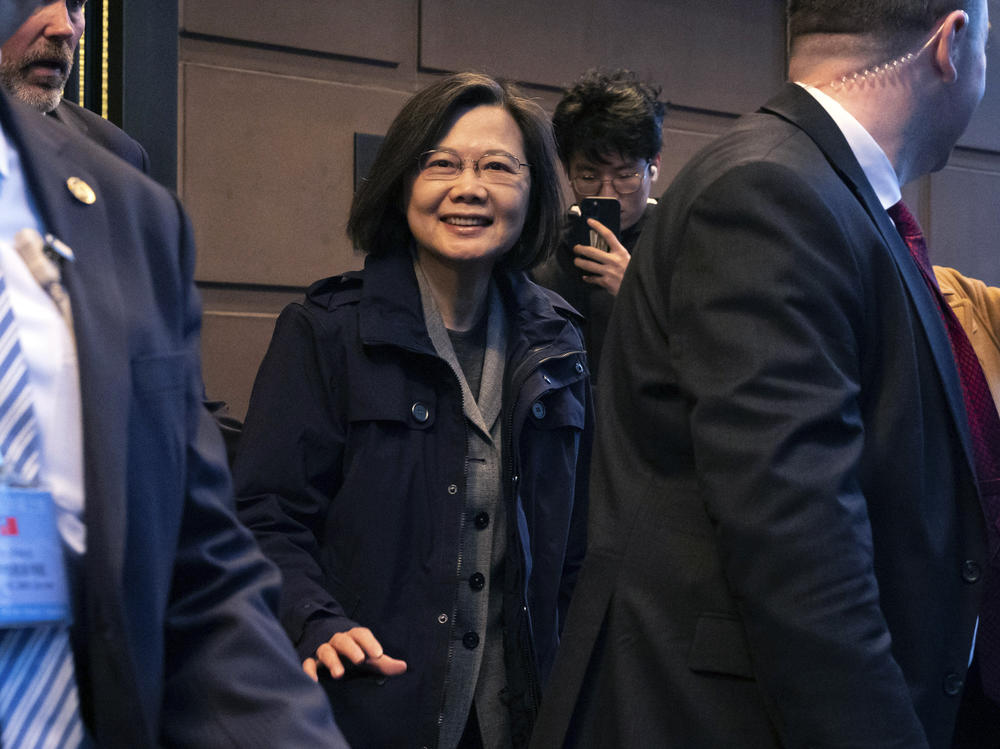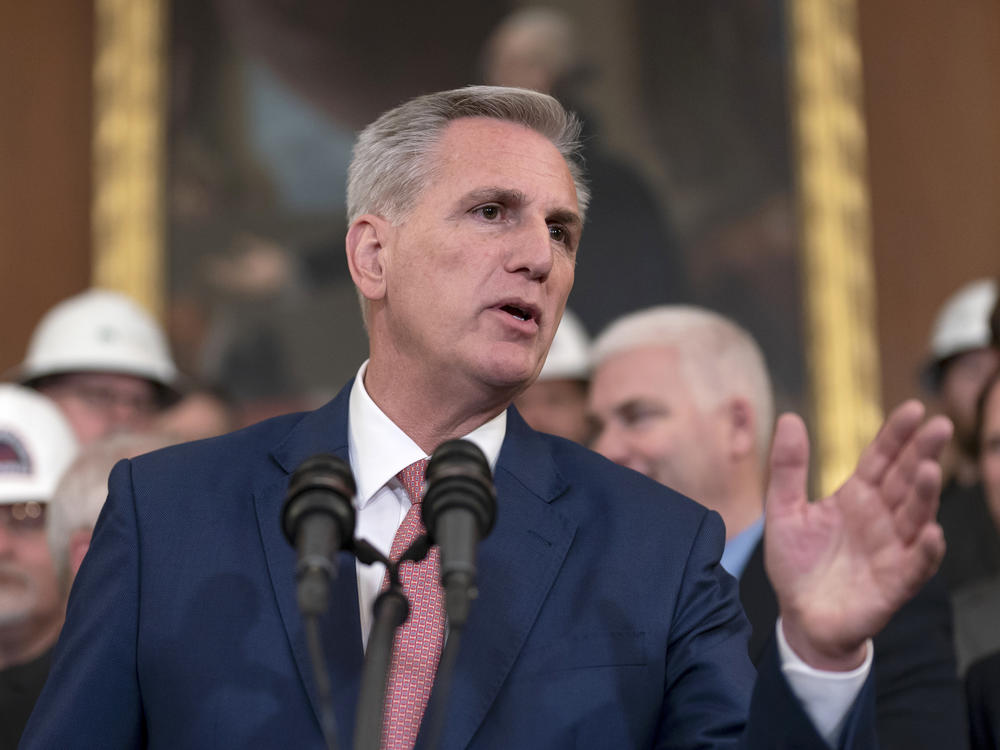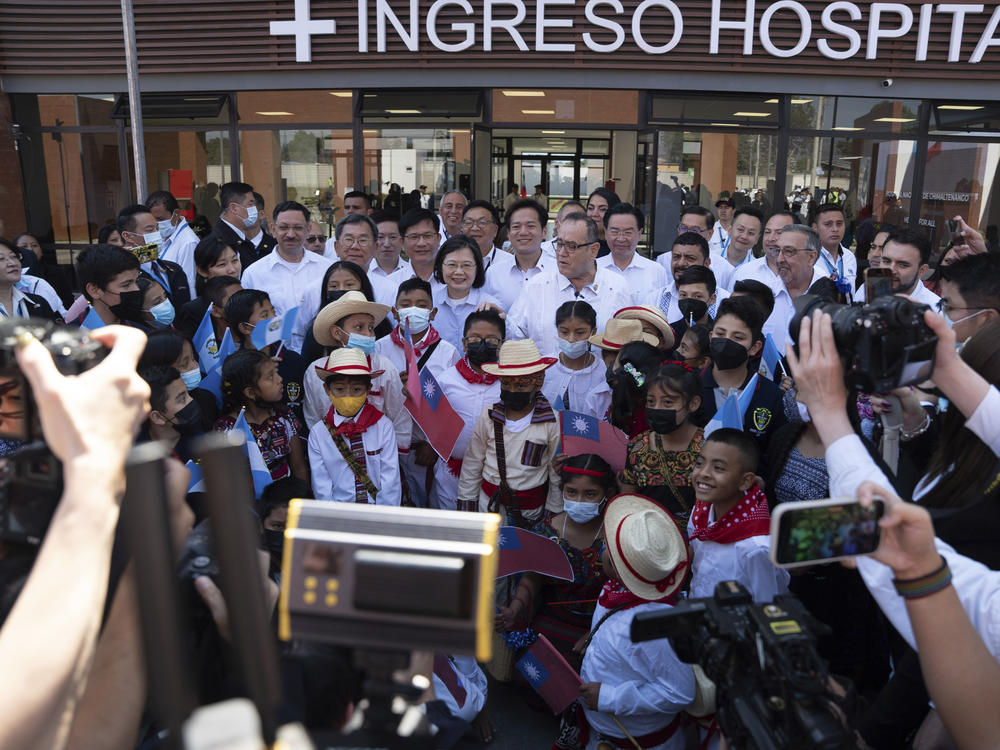Section Branding
Header Content
As Taiwan's President Tsai prepares to meet Kevin McCarthy, China is watching
Primary Content
TAIPEI — Taiwan's President Tsai Ing-wen is in California on Wednesday, where she will meet with House Speaker Kevin McCarthy in an encounter that is being closely watched in Beijing.
The pair are set to meet, along with other American officials from both political parties, at the Ronald Reagan Presidential Library on the northern outskirts of Los Angeles, rather than in Taipei, as originally proposed by McCarthy.
For Tsai, the meeting will cap off a high-stakes international trip intended to shore up Taiwan's relations with its limited number of foreign partners and to prove to voters in her last year in office that strengthening ties with the U.S. has been worth the fallout, as Taipei's relations with China steadily deteriorate.
"Tsai's trip is not simply a 'graduation trip' [as she finishes her term]. It is definitely an assist for raising the foreign diplomacy of Taiwan," says Lin Ying Yu, an international relations professor at Taiwan's Tamkang University.
Last week, Tsai flew to New York for a private dinner with the Hudson Institute, an American think tank. On Wednesday, just hours before her planned meeting with McCarthy, Tsai's office published photos revealing she had also quietly met with three U.S. senators in New York last week: Republican senators Dan Sullivan of Alaska and Joni Ernst of Iowa, as well as Democratic Senator Mark Kelly of Arizona. They discussed proposed U.S. legislation that would sanction China, should it invade Taiwan.
Tsai then made her way to Central America for official visits to Guatemala and Belize, two of the 13 countries that recognize Taiwan and not Beijing as a legitimate government.
Tsai's visit marks a delicate balancing act and comes amid Chinese warnings
In Taiwan, Tsai's trip has been shadowed by concerns over the island's tense relations with its hostile neighbor, China. These anxieties are increasingly at the fore of voters' minds as the island heads into a presidential campaign year. Tsai has had to manage a careful balancing act by projecting defiance against Chinese interference without provoking a conflict.
For Taiwan, Tsai's stop in Los Angeles serves as reassurance that the U.S. — by far the island's most important partner, even though it does not officially recognize Taipei — remains firmly supportive of the island.
"Although sometimes the U.S. will make some so-called concessions and interact with China, Tsai's meeting with McCarthy shows the U.S. will stick to its bottom lines and will not let China manipulate it on cross-strait issues," says Lin.
China has threatened "countermeasures" after Wednesday's meeting to show its displeasure — just as it did when former House Speaker Nancy Pelosi visited Taiwan last summer, in the highest-ranking U.S. visit to the Asian island in a quarter-century.
"If Tsai does meet McCarthy, the [People's Liberation Army] will resolutely respond similarly to when then-U.S. House Speaker Nancy Pelosi provocatively visited the island of Taiwan in August 2022," Chinese state media outlet quoted Fu Qianshao, a Chinese mainland military expert, as saying.
Starting last weekend, China's People's Liberation Army held live-fire joint force training exercises for its air force, navy and ground forces — preparation, China has suggested, for much larger drills that could once again disrupt international shipping lanes and encircle Taiwan, should Tsai go through with the meeting with McCarthy.
Taiwan's foreign ministry called Beijing's threats "increasingly absurd and unreasonable" on Tuesday, saying Taiwan "does not accept interference or suppression by any country for any reason, and will not set limits on itself because of intimidation or interference."
China considers Taiwan part of its territory and vehemently objects whenever Taiwanese officials engage in high-profile international meetings, though that has not stopped a steady stream of U.S. Congress members and European parliamentarians from visiting the Asian island.
Already, a bipartisan U.S. congressional delegation led by House Foreign Affairs Committee Chair Michael McCaul is planning to meet with Tsai on Saturday in Taipei, the day after she returns from her Los Angeles meeting.
Meanwhile, a former Taiwanese president is visiting China
Not all of Taiwan has been enthusiastic about the island's closer ties with the U.S.
Concurrent with Tsai's Central and North American travels, Taiwan's former President Ma Ying-jeoh is wrapping up a tour of various Chinese cities – the first time ever that a retired or former Taiwanese leader has visited China.
Ma's office said the trip was personal and centered around a highly emotional pilgrimage to his family's ancestral tomb in China's Hunan province. But the former president also held lengthy meetings with top Chinese Communist Party officials on Taiwan affairs.
"People on both sides of the Taiwan Strait are [ethnically] Chinese people, and are both descendants of the Yan and Yellow Emperors," Ma declared.
His visit has been heavily criticized by Taiwan's ruling political party — a reflection of the starkly contrasting approaches within Taipei's political establishment to relations with China.
Copyright 2023 NPR. To see more, visit https://www.npr.org.



